Spotlight
A selection of stories from across the Federation

Romania
Roma Women in Romania Face Old and New Threats to Abortion Care Access
Roma women and girls face multiple barriers to abortion care in Romania. Far more needs to be done to protect their rights, says Roxana-Magdalena Oprea of E-Romnja.
Most Popular This Week
Romania
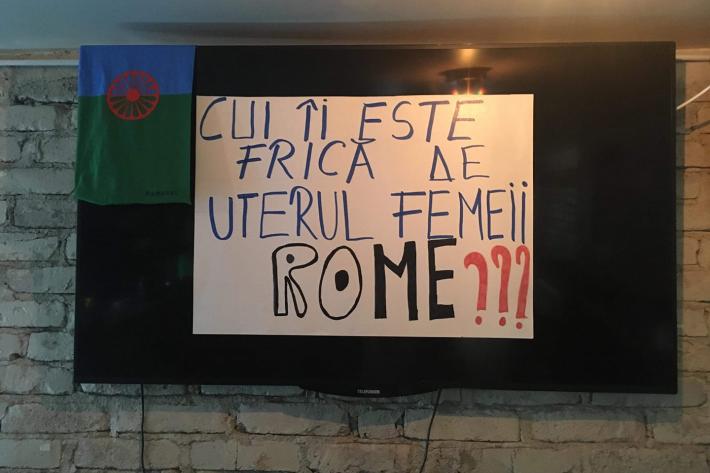
Roma Women in Romania Face Old and New Threats to Abortion Care Access
For Roma women and girls in Romania, the struggle to access abortion care brings them into contact with horrific levels of racism and discrimination, hardw
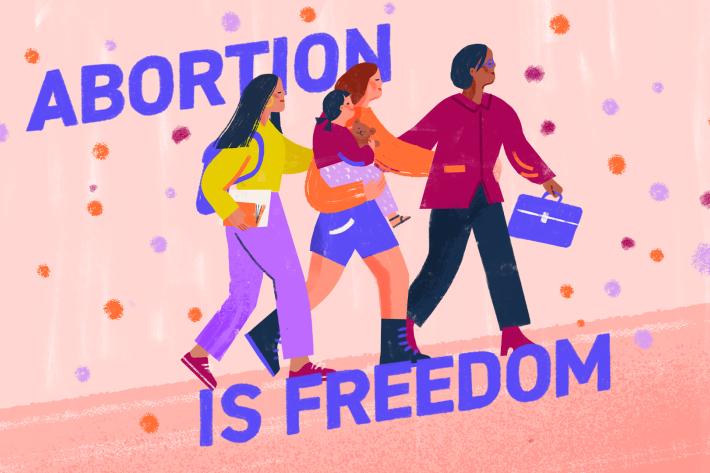
Croatia: Obstacles to abortion care make access virtually non-existent
Hitting the road in the desperate search for abortion care
Romania
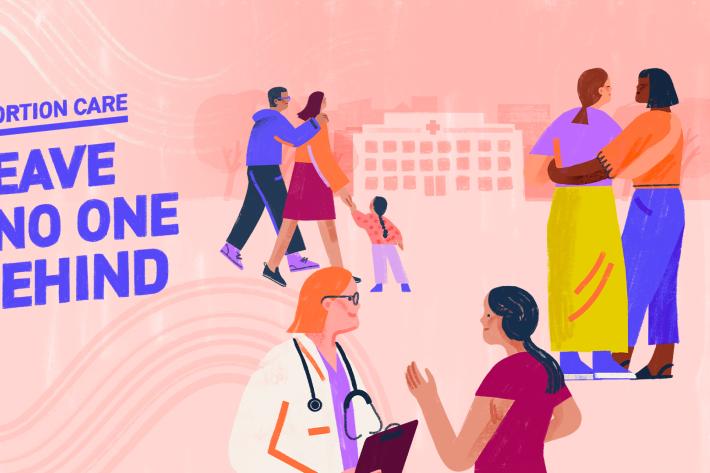
High costs and broken health system freeze many out of abortion care in Romania
On paper, abortion care is legal up to 14 weeks in Romania – though only free in emergencies – and should be provided by all hospitals with obstetrics and gynaecology departments.
Germany
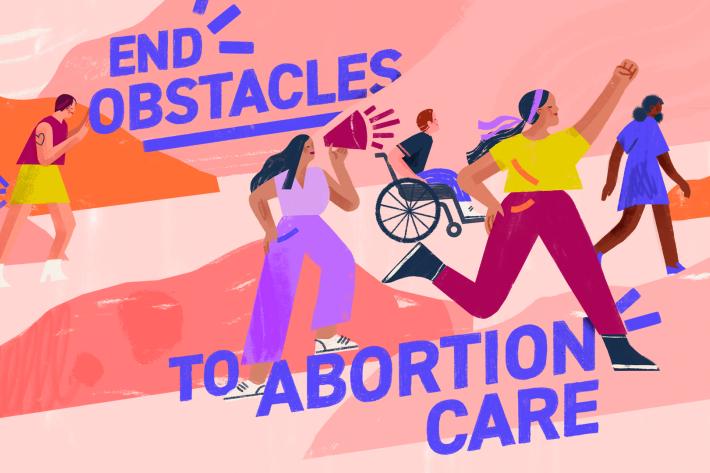
Germany's archaic abortion law creates huge burden for people needing care
For a country long reputed to have one of the more progressive healthcare systems in Europe, Germany’s law on abortion – a health issue affecting millions of people – remains firm
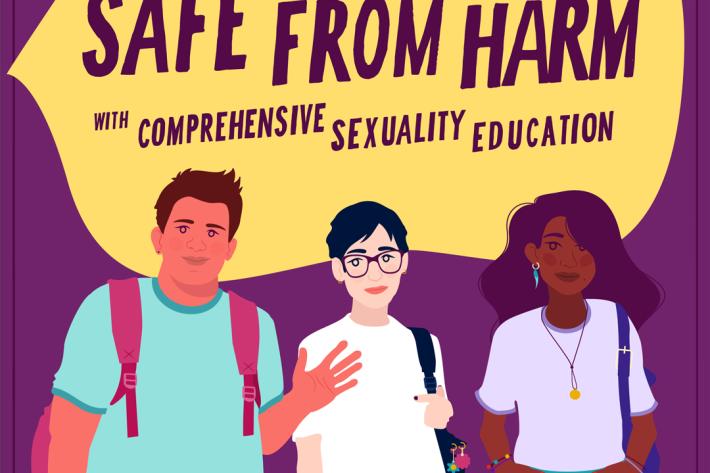
Sexuality education keeps young people safe from harm
Comprehensive sexuality and relationship education is a vital prevention tool in the fight
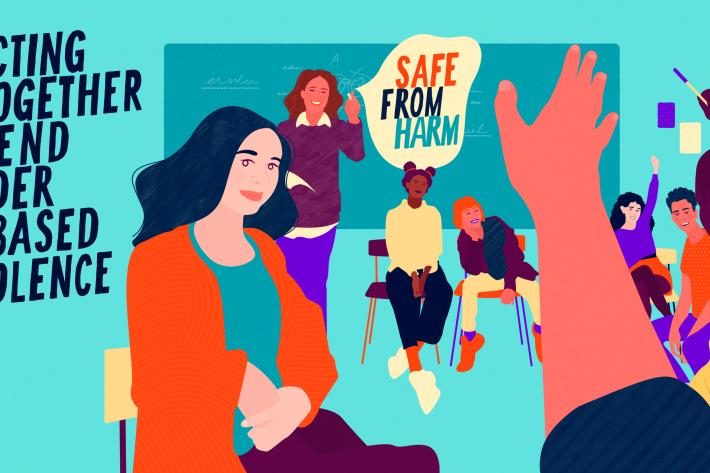
Belgium’s consent law is clear: Absence of no doesn’t mean yes
‘Rape isn’t always something that happens when you are dragged into an alleyway’, says Heleen Heysse, Policy Officer at
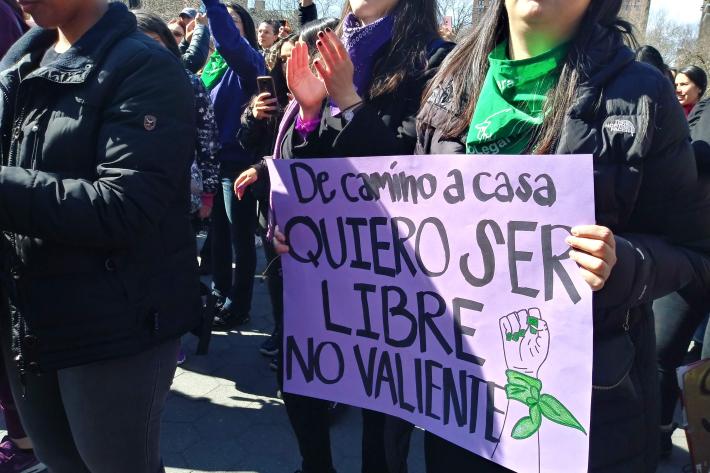
Legislating the path to consent: Spain's Yes Means Yes law
‘Everyone has the right to live without violence. You can have sex without love, but always with care’.
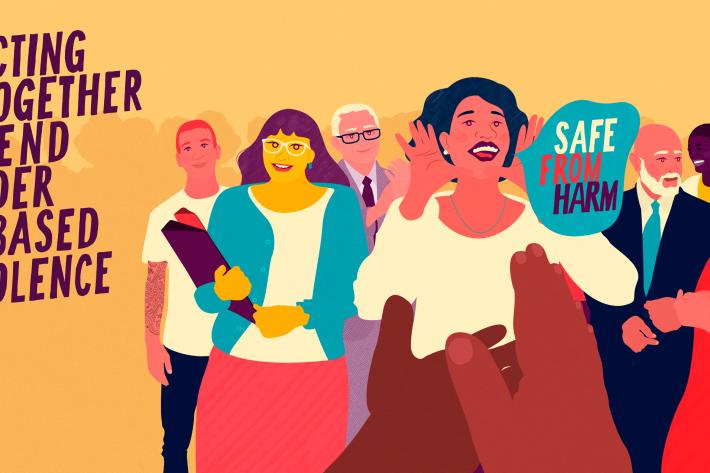
Anything less than yes is rape: the campaign for a consent-based rape law in Sweden
The absence of a ‘no’ is not an implicit yes. This is the overarching principle of a long-fought Swedish ‘consent law’ aimed at disman
Filter our stories by:


| 15 October 2022
"Teachers are too embarrassed to talk about sex. It would be better to talk to young people at an earlier age."
We spoke to young people from the Western Balkans about how their access to sexual and reproductive health and rights was affected by the COVID pandemic, and asked them about their vision for re-designing a more youth-friendly future in which young people can flourish. Erblin Berisha is a 21-year-old from Prishtina, Kosovo. He is studying web development. Describe your experience of access to SRHR* education, information and care before and during COVID. COVID limited our access to SRHR because of measures like we had to wear masks and could go out for just two hours a day with our ID cards. Information was less accessible because NGOs couldn’t hold their activities. If we were interested, we could Google a topic - I did this. But before the pandemic there were activities that were a good way to let everyone know about sexual health risks. Here in Kosovo it’s kind of difficult for SRHR to be taken seriously because there’s an old mentality of not talking about sexual health. Now, that we are out of the pandemic I suppose information is more accessible – thank god, because it is really important. Do you think anything changed for the better during COVID? Not, really no. I think a lot of things improved digitally during the pandemic, but not access to SRHR information. It was kind of like a forgotten subject, so the only information people got was how to deal with COVID-19, but they never really talked about sexual health. What was the biggest obstacle to your SRHR during the pandemic? How could decision-makers/medical professionals have removed this obstacle? The people who provide information on SRHR are already doing their best by building young people’s awareness and developing activities. I’m not sure if this did happen, but it would have been helpful during the pandemic to hold online meetings on SRHR, to give people knowledge about how to keep themselves safe. What lessons do you think that governments and professionals like doctors should take from COVID about how to look after young people health? I don`t think they learned any lessons, because after the pandemic everyone acted like COVID was gone and there were no improvements, like people forgot about sexual health actually. What is your number one recommendation of what is needed to make services youth-friendly? I would say probably make people aware of these issues from an early age. One problem is that teachers don’t want to talk about this stuff because it’s embarrassing; that happened to me at school, when sex was mentioned, the kids all started laughing and didn’t care about the lesson, and the teacher got embarrassed and just told us to read the materials at home, which probably nobody did. It would better to actually talk about this earlier on. What difference would this make in your life, or your friends' lives? Having more knowledge about SRHR would help us to be prepared and able to take care of ourselves. So, I guess you took part in SRHR activities, right? What helped you to become engaged as an educator? Yes. Honestly, there were a lot of benefits. Even though I started when I was at university, I still learned a lot of stuff that I didn`t know before. At first I didn’t care so much about some of the issues, I just thought they were interesting and it would probably be useful to know more. But when I started being a part of a group, it was about gender equality and other SRHR issues, and it was good to learn more about something that you need in your life. * SRHR = sexual and reproductive health and rights Interview conducted by Elionita Rexhepaj and Elsa Rexhepaj, members of the regional youth group of the IPPF EN project Youth Voices, Youth Choices, funded by MSD for Mothers

| 25 October 2022
"Teachers are too embarrassed to talk about sex. It would be better to talk to young people at an earlier age."
We spoke to young people from the Western Balkans about how their access to sexual and reproductive health and rights was affected by the COVID pandemic, and asked them about their vision for re-designing a more youth-friendly future in which young people can flourish. Erblin Berisha is a 21-year-old from Prishtina, Kosovo. He is studying web development. Describe your experience of access to SRHR* education, information and care before and during COVID. COVID limited our access to SRHR because of measures like we had to wear masks and could go out for just two hours a day with our ID cards. Information was less accessible because NGOs couldn’t hold their activities. If we were interested, we could Google a topic - I did this. But before the pandemic there were activities that were a good way to let everyone know about sexual health risks. Here in Kosovo it’s kind of difficult for SRHR to be taken seriously because there’s an old mentality of not talking about sexual health. Now, that we are out of the pandemic I suppose information is more accessible – thank god, because it is really important. Do you think anything changed for the better during COVID? Not, really no. I think a lot of things improved digitally during the pandemic, but not access to SRHR information. It was kind of like a forgotten subject, so the only information people got was how to deal with COVID-19, but they never really talked about sexual health. What was the biggest obstacle to your SRHR during the pandemic? How could decision-makers/medical professionals have removed this obstacle? The people who provide information on SRHR are already doing their best by building young people’s awareness and developing activities. I’m not sure if this did happen, but it would have been helpful during the pandemic to hold online meetings on SRHR, to give people knowledge about how to keep themselves safe. What lessons do you think that governments and professionals like doctors should take from COVID about how to look after young people health? I don`t think they learned any lessons, because after the pandemic everyone acted like COVID was gone and there were no improvements, like people forgot about sexual health actually. What is your number one recommendation of what is needed to make services youth-friendly? I would say probably make people aware of these issues from an early age. One problem is that teachers don’t want to talk about this stuff because it’s embarrassing; that happened to me at school, when sex was mentioned, the kids all started laughing and didn’t care about the lesson, and the teacher got embarrassed and just told us to read the materials at home, which probably nobody did. It would better to actually talk about this earlier on. What difference would this make in your life, or your friends' lives? Having more knowledge about SRHR would help us to be prepared and able to take care of ourselves. So, I guess you took part in SRHR activities, right? What helped you to become engaged as an educator? Yes. Honestly, there were a lot of benefits. Even though I started when I was at university, I still learned a lot of stuff that I didn`t know before. At first I didn’t care so much about some of the issues, I just thought they were interesting and it would probably be useful to know more. But when I started being a part of a group, it was about gender equality and other SRHR issues, and it was good to learn more about something that you need in your life. * SRHR = sexual and reproductive health and rights Interview conducted by Elionita Rexhepaj and Elsa Rexhepaj, members of the regional youth group of the IPPF EN project Youth Voices, Youth Choices, funded by MSD for Mothers

| 15 October 2022
"Teachers are too embarrassed to talk about sex. It would be better to talk to young people at an earlier age."
We spoke to young people from the Western Balkans about how their access to sexual and reproductive health and rights was affected by the COVID pandemic, and asked them about their vision for re-designing a more youth-friendly future in which young people can flourish. Erblin Berisha is a 21-year-old from Prishtina, Kosovo. He is studying web development. Describe your experience of access to SRHR* education, information and care before and during COVID. COVID limited our access to SRHR because of measures like we had to wear masks and could go out for just two hours a day with our ID cards. Information was less accessible because NGOs couldn’t hold their activities. If we were interested, we could Google a topic - I did this. But before the pandemic there were activities that were a good way to let everyone know about sexual health risks. Here in Kosovo it’s kind of difficult for SRHR to be taken seriously because there’s an old mentality of not talking about sexual health. Now, that we are out of the pandemic I suppose information is more accessible – thank god, because it is really important. Do you think anything changed for the better during COVID? Not, really no. I think a lot of things improved digitally during the pandemic, but not access to SRHR information. It was kind of like a forgotten subject, so the only information people got was how to deal with COVID-19, but they never really talked about sexual health. What was the biggest obstacle to your SRHR during the pandemic? How could decision-makers/medical professionals have removed this obstacle? The people who provide information on SRHR are already doing their best by building young people’s awareness and developing activities. I’m not sure if this did happen, but it would have been helpful during the pandemic to hold online meetings on SRHR, to give people knowledge about how to keep themselves safe. What lessons do you think that governments and professionals like doctors should take from COVID about how to look after young people health? I don`t think they learned any lessons, because after the pandemic everyone acted like COVID was gone and there were no improvements, like people forgot about sexual health actually. What is your number one recommendation of what is needed to make services youth-friendly? I would say probably make people aware of these issues from an early age. One problem is that teachers don’t want to talk about this stuff because it’s embarrassing; that happened to me at school, when sex was mentioned, the kids all started laughing and didn’t care about the lesson, and the teacher got embarrassed and just told us to read the materials at home, which probably nobody did. It would better to actually talk about this earlier on. What difference would this make in your life, or your friends' lives? Having more knowledge about SRHR would help us to be prepared and able to take care of ourselves. So, I guess you took part in SRHR activities, right? What helped you to become engaged as an educator? Yes. Honestly, there were a lot of benefits. Even though I started when I was at university, I still learned a lot of stuff that I didn`t know before. At first I didn’t care so much about some of the issues, I just thought they were interesting and it would probably be useful to know more. But when I started being a part of a group, it was about gender equality and other SRHR issues, and it was good to learn more about something that you need in your life. * SRHR = sexual and reproductive health and rights Interview conducted by Elionita Rexhepaj and Elsa Rexhepaj, members of the regional youth group of the IPPF EN project Youth Voices, Youth Choices, funded by MSD for Mothers

| 25 October 2022
"Teachers are too embarrassed to talk about sex. It would be better to talk to young people at an earlier age."
We spoke to young people from the Western Balkans about how their access to sexual and reproductive health and rights was affected by the COVID pandemic, and asked them about their vision for re-designing a more youth-friendly future in which young people can flourish. Erblin Berisha is a 21-year-old from Prishtina, Kosovo. He is studying web development. Describe your experience of access to SRHR* education, information and care before and during COVID. COVID limited our access to SRHR because of measures like we had to wear masks and could go out for just two hours a day with our ID cards. Information was less accessible because NGOs couldn’t hold their activities. If we were interested, we could Google a topic - I did this. But before the pandemic there were activities that were a good way to let everyone know about sexual health risks. Here in Kosovo it’s kind of difficult for SRHR to be taken seriously because there’s an old mentality of not talking about sexual health. Now, that we are out of the pandemic I suppose information is more accessible – thank god, because it is really important. Do you think anything changed for the better during COVID? Not, really no. I think a lot of things improved digitally during the pandemic, but not access to SRHR information. It was kind of like a forgotten subject, so the only information people got was how to deal with COVID-19, but they never really talked about sexual health. What was the biggest obstacle to your SRHR during the pandemic? How could decision-makers/medical professionals have removed this obstacle? The people who provide information on SRHR are already doing their best by building young people’s awareness and developing activities. I’m not sure if this did happen, but it would have been helpful during the pandemic to hold online meetings on SRHR, to give people knowledge about how to keep themselves safe. What lessons do you think that governments and professionals like doctors should take from COVID about how to look after young people health? I don`t think they learned any lessons, because after the pandemic everyone acted like COVID was gone and there were no improvements, like people forgot about sexual health actually. What is your number one recommendation of what is needed to make services youth-friendly? I would say probably make people aware of these issues from an early age. One problem is that teachers don’t want to talk about this stuff because it’s embarrassing; that happened to me at school, when sex was mentioned, the kids all started laughing and didn’t care about the lesson, and the teacher got embarrassed and just told us to read the materials at home, which probably nobody did. It would better to actually talk about this earlier on. What difference would this make in your life, or your friends' lives? Having more knowledge about SRHR would help us to be prepared and able to take care of ourselves. So, I guess you took part in SRHR activities, right? What helped you to become engaged as an educator? Yes. Honestly, there were a lot of benefits. Even though I started when I was at university, I still learned a lot of stuff that I didn`t know before. At first I didn’t care so much about some of the issues, I just thought they were interesting and it would probably be useful to know more. But when I started being a part of a group, it was about gender equality and other SRHR issues, and it was good to learn more about something that you need in your life. * SRHR = sexual and reproductive health and rights Interview conducted by Elionita Rexhepaj and Elsa Rexhepaj, members of the regional youth group of the IPPF EN project Youth Voices, Youth Choices, funded by MSD for Mothers









